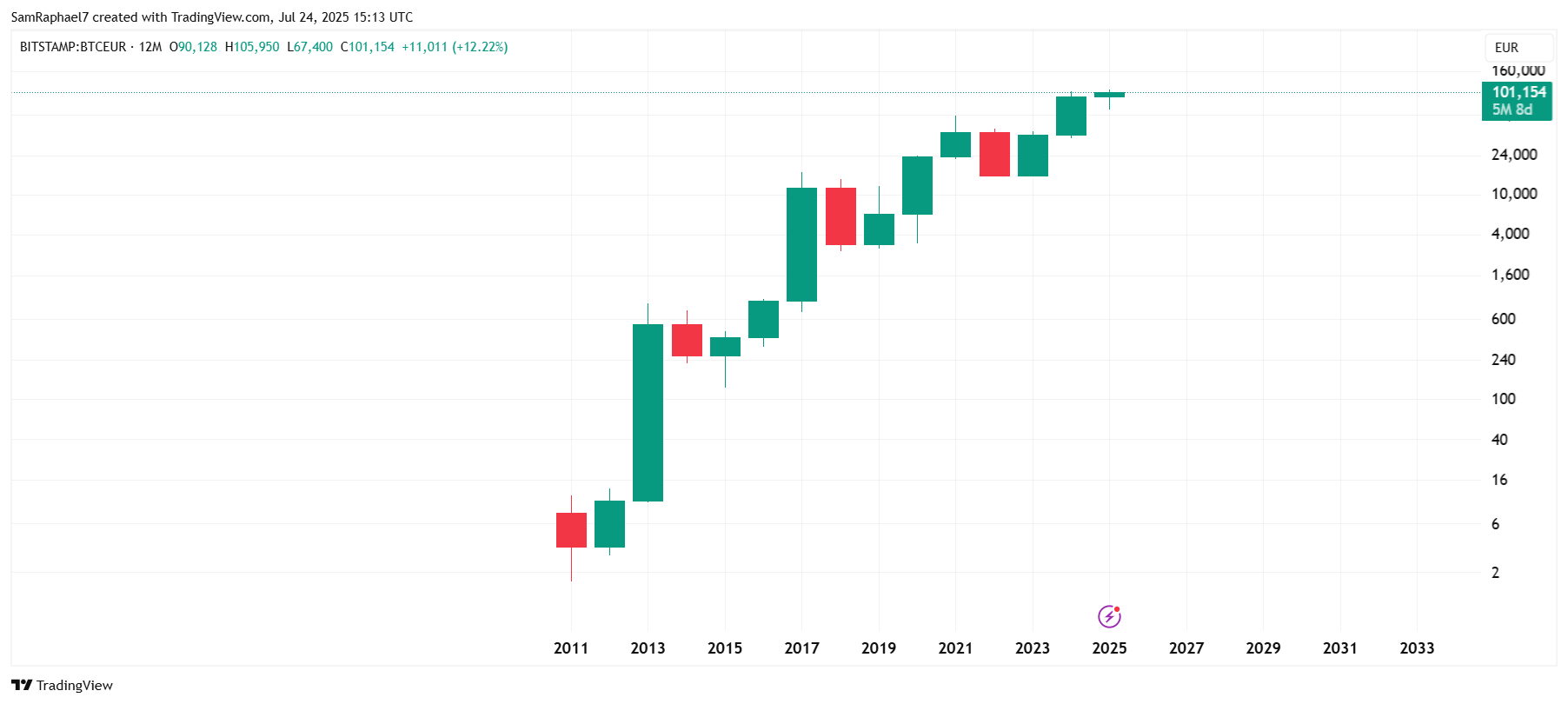A recent HSBC analysis shows that the euro is becoming a reliable safe haven asset, ranking just behind gold and above Bitcoin.
In a study led by the bank’s analysts, including Max Kettner, HSBC used millions of portfolio simulations and a method called bootstrapping to assess how different assets perform during market volatility. Notably, the euro came out as the second most effective asset for protecting multi-asset portfolios, only slightly behind gold.
HSBC: Euro Now an Emerging Safe Haven
Kettner and his team pointed out that the euro now shows the same level of defensive strength as the Swiss franc, which investors have long relied on during market stress. The research team noted that while the franc still holds value, the euro provides a statistically stronger cushion in portfolios with standard equity exposure ranging between 40% and 60%.
Simply put, for most everyday investors and funds, the euro now plays a bigger role in keeping portfolios steady when markets swing.
Particularly, several factors helped the euro reach this level. For one, the Eurozone currently runs a solid current account surplus, which adds to its financial strength. In addition, political tensions across the region have cooled, making the eurozone more stable.
Moreover, the European Central Bank‘s gradual and predictable policy changes have also helped investors see the euro as a reliable, liquid currency that works well in diversified portfolios.
Meanwhile, the U.S. dollar, which many investors traditionally trust in tough times, now faces more uncertainty. Rising federal debt and recent political tensions, especially after Donald Trump returned to office in early 2025, have put pressure on the greenback.
Notably, this condition gave the euro room to recover. After falling by 7.19% between October and December 2024, the euro began rising steadily in early 2025. Since January, it has gained 13.75% against the dollar, now trading at $1.178.
Bitcoin Role as a Safe Haven
Importantly, HSBC’s report didn’t mention Bitcoin as a reliable safe haven despite its “digital gold” branding. While Bitcoin continues to divide opinion, several experts have pointed to its reliability in times of uncertainty.
For instance, Evan Kuo from Ampleforth told Business Insider that Bitcoin’s decentralized nature makes it useful when traditional assets fail. Also, Daniel Dixon of Interdax pointed out how people in countries like Argentina and Venezuela have turned to Bitcoin during currency crashes.
Back in 2022, a University of Luxembourg study said Bitcoin worked as a weak but effective safe haven during specific crises, like the sanctions on Russia.
However, at a recent wealth forum in Dubai, J. Rotbart & Co. managing partner Joshua Rotbart described Bitcoin as a high-risk, high-reward asset, useful for long-term gains but not quite reliable during market stress.
He also raised concerns about Bitcoin’s security and volatility. In addition, Dev Kantesaria from Valley Forge Capital sees Bitcoin more like a collectible than a genuine safe haven.
Despite the doubts, Bitcoin continues to outperform most traditional currencies. In 2025 alone, it has gained 27% against the dollar and 11.85% against the euro. It also beat the euro in both 2023 and 2024, with gains of 149% and 134% respectively.

In fact, since 2011, the euro has only gained against Bitcoin annually four times. However, this strong performance hasn’t changed the fact that Bitcoin still reacts sharply to market pressure, unlike gold, which remains steady when the economy takes a hit.
DisClamier: This content is informational and should not be considered financial advice. The views expressed in this article may include the author's personal opinions and do not reflect The Crypto Basic opinion. Readers are encouraged to do thorough research before making any investment decisions. The Crypto Basic is not responsible for any financial losses.



